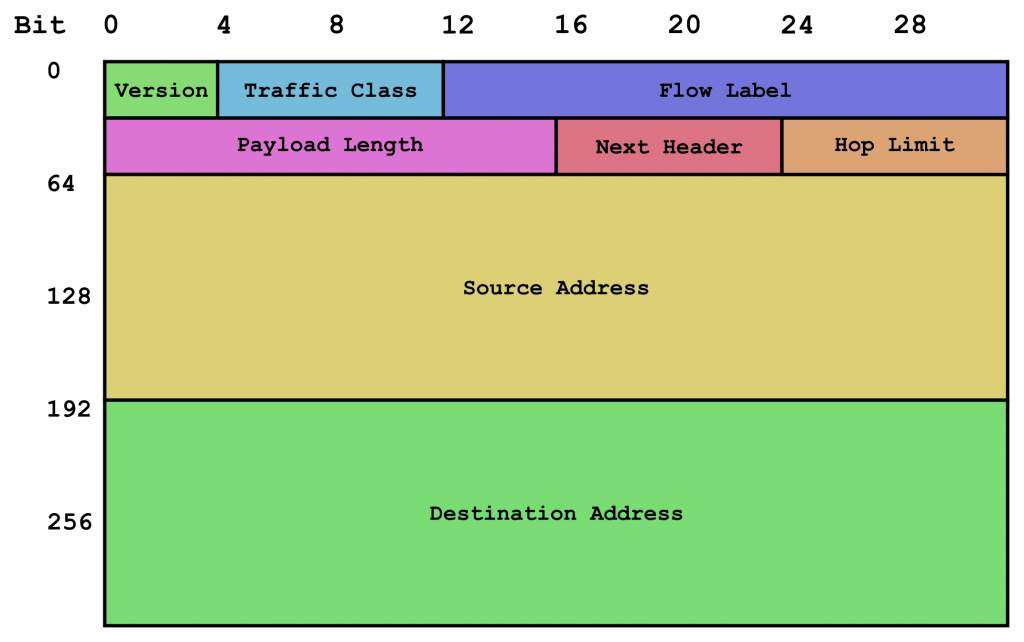IPv6, which is invented by IETF consists of 128 bit and it is tought that will replace IPv4 in a few years. When IPv4 is invented, it wasn’t beleived that need for public ip addresses will increase rapidly and today, IPv4 addresses are about to finish. That is why IPv6 was invented by IETF. Because of it consists of 128 bit, much more hosts can be supported according to IPv4.
An IPv6 ip address example: 2001:0050:0000:0000:0000:DABH:1E2B:98AA
* Serial 0s are eliminated once for each address.
* Uppermost 0s are eliminated.
2001:0050:0AB4:1E2B:98AA is written as 2001:50: :AB4:1E2B:98AA
IPv6 Header
Because of IPv6 header is smaller than IPv4, it is easier to process it, it is more reliable and consumes less bandwidth.

IPv6 Communication Types
* Unicast : One to one communication type.
* Multicast: One to many communication type.(This communication type is used instead of “broadcast” on IPv4)
* Anycast: One to closest communication type.
IPv6 Addressing
* Link-local address : Link local address is a network address that is valid only for communications within the network segment (link) or the broadcast domain that the host is connected to.aLyer 2 domain auto generates it ( Starts with FE80, first 10 bits are 1111 1110 10 and continues with 64 bit 0 ). Last 64 bits are found by replacing “FFFE” to the middle of the MAC Address. For example for the MAC Address 0019.D122.DCF3, link local address is 1111 3110 1000 0000… | 0019.D1FF.FE22.DCF3
* Unique/site local address : Organizations can privately use this address occurs in the block fc00::/7
* Global address : Internet devices use global addressing. First 64 bits are automatically assigned to clients by router. Last 64 bits are created individually by the host clients.
R1(config)# int l0 R1(config-if)#ip add 2001:5511:5522:AAAA | BBBB:1111:2345:1234/ 64
//First 64 bits refer to network //
Differences Between IPv4 And IPv6
- IPv4 is 32 bits while IPv6 is 128.
- IPv4 supports 4.3×109 (4.3 billion) addresses , IPv6 supports 3.4×1038 addresses,
- IPv4 header has 20 bytes, IPv6 header is 40 bytes.
- IPv4 is classful, IPv6 is classless.
- IPv4 address uses a subnet mask , IPv6 uses prefix length.
- IPv6 has a built-in strong security , encyription and authentication.
